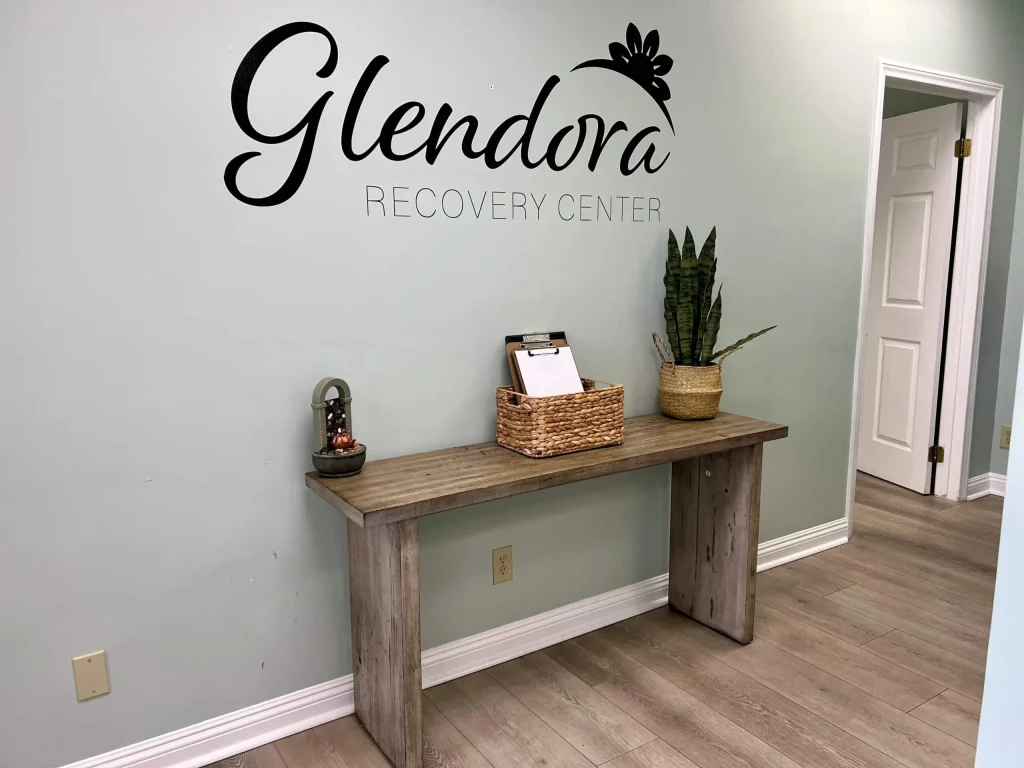Our Locations
1340 E. Route 66 Street Suite 103 & 106, Glendora CA 91740
(626) 594-0881
1340 E. Route 66 Street Suite 103 & 106, Glendora CA 91740
(626) 594-0881

When traumatic experiences overwhelm your capacity for healing, professional PTSD treatment becomes essential for emotional healing and recovery. At Glendora Recovery Center, we provide specialized trauma processing services that individuals can trust, offering evidence-based therapeutic approaches and cutting-edge psychotherapy modalities that help individuals reclaim their lives from the devastating effects of complex trauma disorders.
Post-traumatic stress disorder and Complex Post Traumatic Stress Disorder affect millions of people, with approximately 9 million adults experiencing PTSD in any given year. This mental health condition can develop after exposure to trauma such as physical assault, sexual assault, emotional abuse, adverse childhood events, or extreme weather events. Research shows that about 6% of Americans will experience PTSD at some point in their lives, making it far more common than many people realize.
Complex trauma often stems from childhood trauma, developmental trauma, or collective trauma experiences that disrupt brain function and emotional regulation. The effects of trauma include intrusive memories, avoidance of reminders, disturbed sleep patterns, difficulties in attention regulation, intense anxiety, and relationship difficulties. These experiences can create an unhealthy relationship with daily life, affecting everything from intimate relationships to social situations.
What makes traumatic experiences particularly challenging is how they affect different people in various ways. Women are twice as likely as men to develop PTSD, with lifetime prevalence rates of 10-12% for women compared to 5-6% for men. The good news is that posttraumatic stress disorder and complex trauma treatment are highly effective when you receive proper professional care from our trauma specialist team.

Our PTSD treatment Los Angeles program centers on evidence-based therapeutic approaches that address the connection between trauma and brain waves, helping restore healthy brain function. According to the National Center for PTSD, 53 out of 100 patients who receive evidence-based trauma therapies will no longer have PTSD after treatment completion.
Our personalized approach includes various modalities designed to address the entire community of symptoms associated with complex trauma:
Our PTSD services include multiple levels of care designed by our complex trauma treatment team to meet your specific needs:
Complex trauma rarely occurs in isolation. Many individuals struggle with both trauma symptoms and other mental health issues, including process addiction, marital distress, or experiences of abuse. Our integrated approach addresses all conditions simultaneously, recognizing that trauma may lead to severe distress and that successful treatment requires addressing all aspects of your mental health condition.
Our team includes an addiction specialist who understands the complex relationship between trauma and substance use. We provide comprehensive addiction treatment that addresses psychological trauma while supporting your recovery journey.
Beyond PTSD, we also treat co-occurring mental illness such as depression treatment in Los Angeles and bipolar disorder treatment in Los Angeles, ensuring comprehensive mental health field expertise.
The effects of anxiety from traumatic experiences can manifest as intense fear, aggressive behavior, or complete avoidance of certain social situations. Our treatment addresses these examples of situations where trauma impacts daily functioning.
Disturbed sleep is common among trauma survivors. We address sleep disturbances and help develop skills for better regulation of sleep patterns, which are crucial for healing.
Trauma often affects intimate relationships and creates difficulties in them. We focus on helping individuals develop healthier relationship dynamics and address interpersonal relationship issues that may have developed as a result of trauma.

Creative expression can be particularly powerful for trauma survivors, especially highly-sensitive people and empathetic people who may struggle with traditional talk therapy. Our art therapy program provides a non-verbal outlet for processing difficult feelings and experiences, allowing emotional healing to occur through creative expression.
Recognizing that trauma is stored in the body as well as the brain, we incorporate yoga therapy into our treatment approach. These body-based interventions help restore the sense of safety and control that trauma often disrupts, addressing both physical and emotional aspects of healing.
Our treatment environment welcomes individuals from all backgrounds, including non-monogamous people and diverse communities, ensuring that everyone has access to a safe space for healing. We understand that examples of trauma include a wide range of experiences, and our goal is to provide culturally sensitive care that honors each person’s unique experience with trauma.
PTSD affects not just individuals but entire families and communities. Our treatment approach includes family education and support, helping loved ones understand the mental health condition and learn how to provide effective support during different periods of life and life transitions.
Current research strongly supports the effectiveness of evidence-based PTSD treatments in restoring healthy brain function and emotional regulation. The World Health Organization reports that up to 40% of people with PTSD recover within one year when they receive appropriate treatment. Our trauma-focused approach is designed to maximize your capacity for healing and achieve this level of recovery.

Taking the first step toward treatment of trauma survivors can feel overwhelming, but you don’t have to face it alone. At Glendora Recovery Center, we make beginning the treatment of individuals as straightforward as possible:
PTSD symptoms and the effects of trauma can feel overwhelming, but with proper treatment, recovery is not only possible—it’s expected. Our trauma processing approach combines the latest evidence-based forms of trauma therapy with compassionate, individualized care to help you move beyond traumatic experiences toward a life of renewed purpose.
At Glendora Recovery Center, we understand that seeking help takes courage. Our experienced team of trauma specialists is here to support you every step of the way, providing the tools and strategies you need to overcome complex trauma and reclaim your life.
Remember, it is never too late to seek help for PTSD or complex trauma. Whether your traumatic experiences occurred recently or years ago, effective treatment can help you heal and develop healthier feelings about life.
Don’t let trauma control your life any longer. Contact Glendora Recovery Center today to learn more about our comprehensive PTSD treatment Los Angeles program. Our admissions specialists are available to answer your questions and help you begin your journey toward emotional healing and recovery.
Contact us to schedule your confidential assessment. Your path to healing from traumatic experiences starts with a single phone call.
DHCS License#: 191012BP
EXP: 12/31/2026
JCAHO #: 666556
Glendora Recovery Center | © Copyright 2025 | Privacy Policy | Sitemap